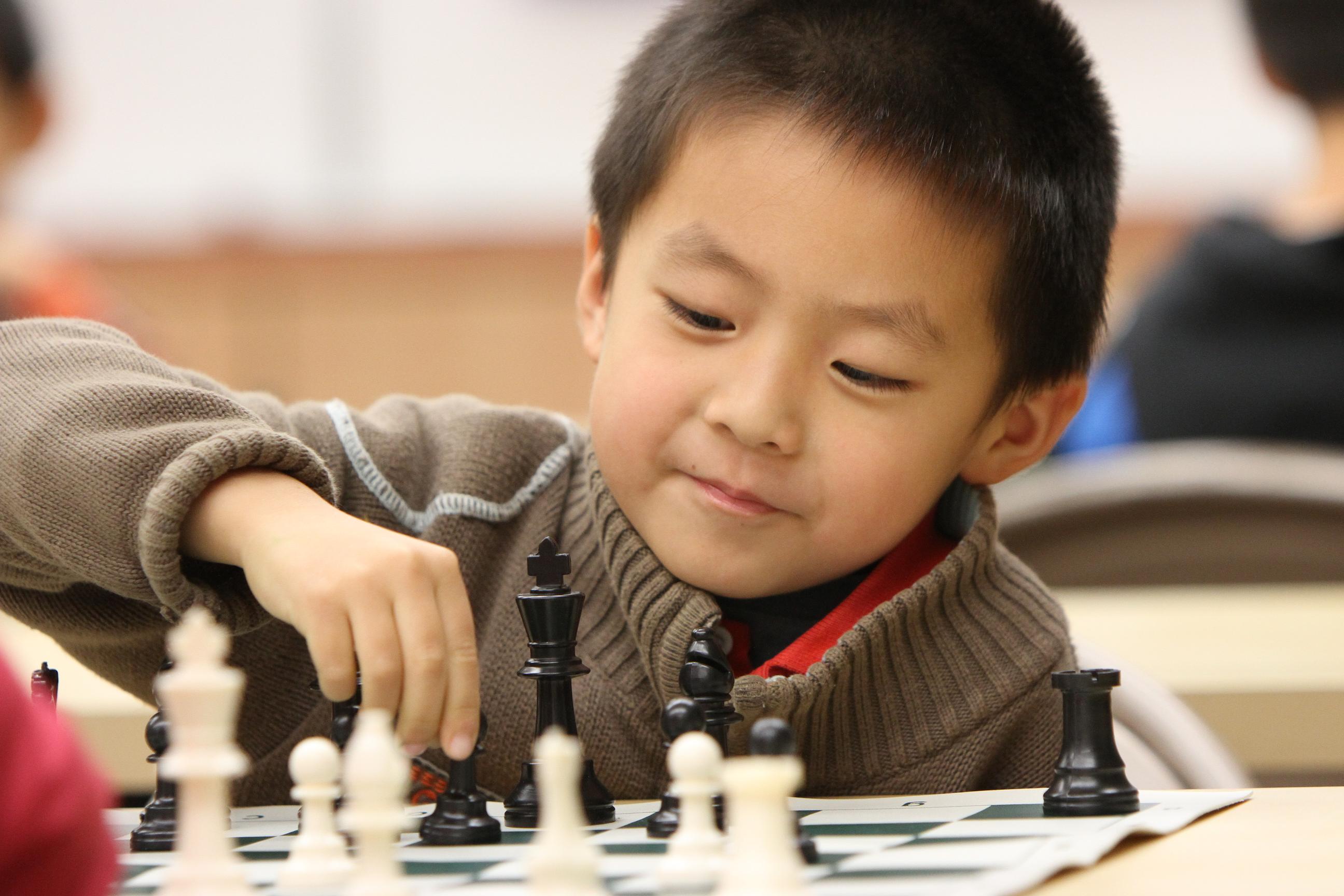
研究指出,小學生每個星期抽 1 個小時下西洋象棋會提升他們的專注力、數學能力、獨立思考能力和提升運動家精神。經過統計,有持續下象棋的小學生在學校的表現更是有明顯進步,尤其是數學這一科。這種技能專家也稱為是「軟實力」. . .

All primary school children should be given an hour of chess each week after research found that lessons improved pupils’ concentration, boosted thinking skills and raised levels of sportsmanship.
Experts called for children as young as seven to receive tuition in the game for at least a year because it could have a major impact on pupils’ academic ability and "soft skills".
Research commissioned by the charity Chess in Schools and Communities found that two-thirds of teachers believed children’s performance in the classroom – particularly in maths – had improved after being taught to play the game.
 The study also suggested a link between chess and pupils’ thinking or cognitive skills, problem-solving ability, concentration levels and the “ability to cope with winning and losing”.
The study also suggested a link between chess and pupils’ thinking or cognitive skills, problem-solving ability, concentration levels and the “ability to cope with winning and losing”.
But the research, which was published to coincide with the London Chess Classic this weekend, suggested that many state schools struggled to provide chess as part of the normal timetable, often due to the demands of other subjects and behaviour problems.
It follows the publication of separate figures showing that fewer than one-in-10 state-educated pupils currently get access to chess, placing them at a disadvantage compared with privately-educated peers.
 Malcolm Pein, the charity’s chief executive and the Telegraph’s chess correspondent, said greater access to chess lessons could have a major impact, particularly on girls and children in inner-city areas who traditionally miss out on the game.
Malcolm Pein, the charity’s chief executive and the Telegraph’s chess correspondent, said greater access to chess lessons could have a major impact, particularly on girls and children in inner-city areas who traditionally miss out on the game.
"Our survey demonstrates the impact chess can have in the classroom in improving academic attainment,” he said.
“Chess also engenders many softer skills such as good sportsmanship and builds self-esteem while encouraging children to plan ahead and take responsibility for their actions.
“Chess is a low-cost high impact intervention and the game crosses all social, cultural and language barriers making it ideal for inner-city schools.
“The classroom model as opposed to the traditional after school chess club ensures girls participate with success in what has previously been considered a game for boys.”
 The charity – which does not receive any state funding – currently takes chess into 343 primary schools across 56 boroughs. In the majority of cases, pupils receive at least one hour’s worth of coaching a week over the course of an academic year, with classes targeting pupils between the age of seven and 10.
The charity – which does not receive any state funding – currently takes chess into 343 primary schools across 56 boroughs. In the majority of cases, pupils receive at least one hour’s worth of coaching a week over the course of an academic year, with classes targeting pupils between the age of seven and 10.
As part of the study, chess coaches and teachers in 221 schools were asked to rate the impact that the game had on pupils’ wider performance in the classroom.
Some 99 per cent of staff said pupils taking part in the chess programme showed improved cognitive skills, while 96 per cent cited better problem-solving ability and 89 per cent said concentration levels had been raised. A further 93 per cent of staff said levels of sportsmanship had improved and 90 per cent insisted pupils were better placed to deal with winning or losing.
In a further conclusion, 63 per cent of staff agreed that chess had “improved academic performance”, with 31 per cent specifically claiming that maths grades had improved following coaching.
A chess coach in one school told researchers: “I have worked with several children whose behaviour and concentration levels were both 'below par' who have become hooked on chess and as a result learned to sit still and focus for far longer than they ever did before."
But the study found that many schools still complained of “barriers to establishing chess lessons”.
This included “insufficient time available in the curriculum”, which was cited by 39 per cent of staff. Among coaches alone, almost a quarter claimed that standards of classroom behaviour posed the greatest problems when it came to running lesson.
Original Article原文請按此: